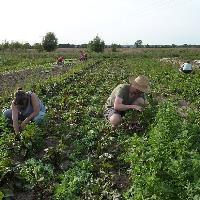(BRUSSELS) – A new system of electronic certification for monitoring imports of organic products into the EU came into force Wednesday, improving the products’ traceability and collection of reliable data on its trade.
The e-certification system is aimed at enhancing food safety and reducing potential fraud. It is also supposed to reduce the administrative burden for operators and authorities, and provide more comprehensive statistical data on organic imports.
The system follows recommendations from the European Court of Auditors, as well as a request from EU Member States to address concerns about monitoring the movements of organic products and the consistency of import checks, the new rules are aimed at improving the traceability of organic products and reducing potential fraud.
“These high standards have allowed us to become the best address for food in the world,” said Agriculture Commissioner Phil Hogan: “our commitment to stringent certification and inspection measures is an important component in the EU’s food safety standards.”
The Commission implementing regulation (EU) 2016/1842 amended Regulation (EC) No 1235/2008 as regards the electronic certificate of inspection for imported organic products and certain other elements, and Regulation (EC) No 889/2008 as regards the requirements for preserved or processed organic products and the transmission of information.
Both paper and e-certification will be used during a 6-month transition period. As of 19 October 2017, organic imports will be covered only by e-certification.
The changes will require the addition of these import certificates into the Trade Control & Expert System (TRACES) the existing EU electronic system for tracking movements of food products across the EU. Accessible 24/7, the TRACES system has been shown to facilitate trade by enabling trade partners and competent authorities to easily obtain information on the movements of their consignments, and speeding up administrative procedures. It also proved to be an invaluable tool in facilitating the rapid reaction to health threats by tracing the movements of consignments and facilitating the risk management of rejected consignments.


